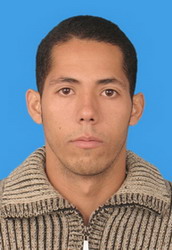

From a University in Havana to the Nano-Centre in Beijing
 People often find themselves imagining what they will be doing in several years or even in a few months, and wondering what their lives would look like... I’ve had the leisure to ask myself these questions on occasion, but could only come up with one conclusion: “I’m not very good at predicting my future”.
People often find themselves imagining what they will be doing in several years or even in a few months, and wondering what their lives would look like... I’ve had the leisure to ask myself these questions on occasion, but could only come up with one conclusion: “I’m not very good at predicting my future”.
For five years we studied at a university located in the same centre of Havana. We all went there with the goal of learning everything we could about nuclear science. We expected and accomplished this much. But we never imagined that we would take on multiple roles other than just a student, in response to appeals for help from the government, which was faced with resource shortages at the time. For a while, we acted as teachers in fifteen high schools throughout Havana, while some of us simultaneously served as professors at the same universities in which we were studying. We also became laborers every harvest season, working in crop fields. And, among other projects, at one point we were part of a brigade, created to reduce national energy consumption.
It was, maybe not so much, but we were really not expecting so many and such different things.
Those years can be summarized by several points. First of all, we learned not to underestimate the difficulty of other people’s jobs, because every task requires a specific ability that we don’t understand or fully appreciate until we are required to perform the job ourselves. Second, I realized that we should always try to love what we do (things are a lot harder if we don’t). Finally, we need to study, believe in the importance of our work, be certain of everything we do, and be prepared with arguments in order to defend our position at any given time.
Approximately one year after we completed our studies, and faced with the need to construct a research centre in Cuba for nanoscience and nanotechnology (to assist the Cuban biotechnological industry), we were called for a new task – to research and study at the national Centre for Nanoscience and Technology (NCNST) in Beijing. We arrived in Beijing with almost no idea of what “nano” means and with zero lab experience. Since we arrived, NCNST was for us, and still remains, a centre with up-to-date technology and unlimited resources. With the valuable help of professors and students, and with time and patience, we are becoming familiar with new terminology and laboratory equipment. In the Laboratory for Nanocharacterization, through use of Scanning Probe Microscopy, I have been involved in a project to study the wetting processes at nanometer scale under the influence of a high electric field, as well as physical and chemical properties of materials surfaces at microscopic scale. This is completely different from what we were doing few years ago, but over time, as I said before, we have learned to love and believe in this work.
Our stay at NCNST has been a great academic opportunity as well as a very interesting experience. I believe that there are great possibilities and numerous resources here at the NCNST in China that deserve to be appreciated.
| 附件 |
|---|
| 相关文档 |
|---|


